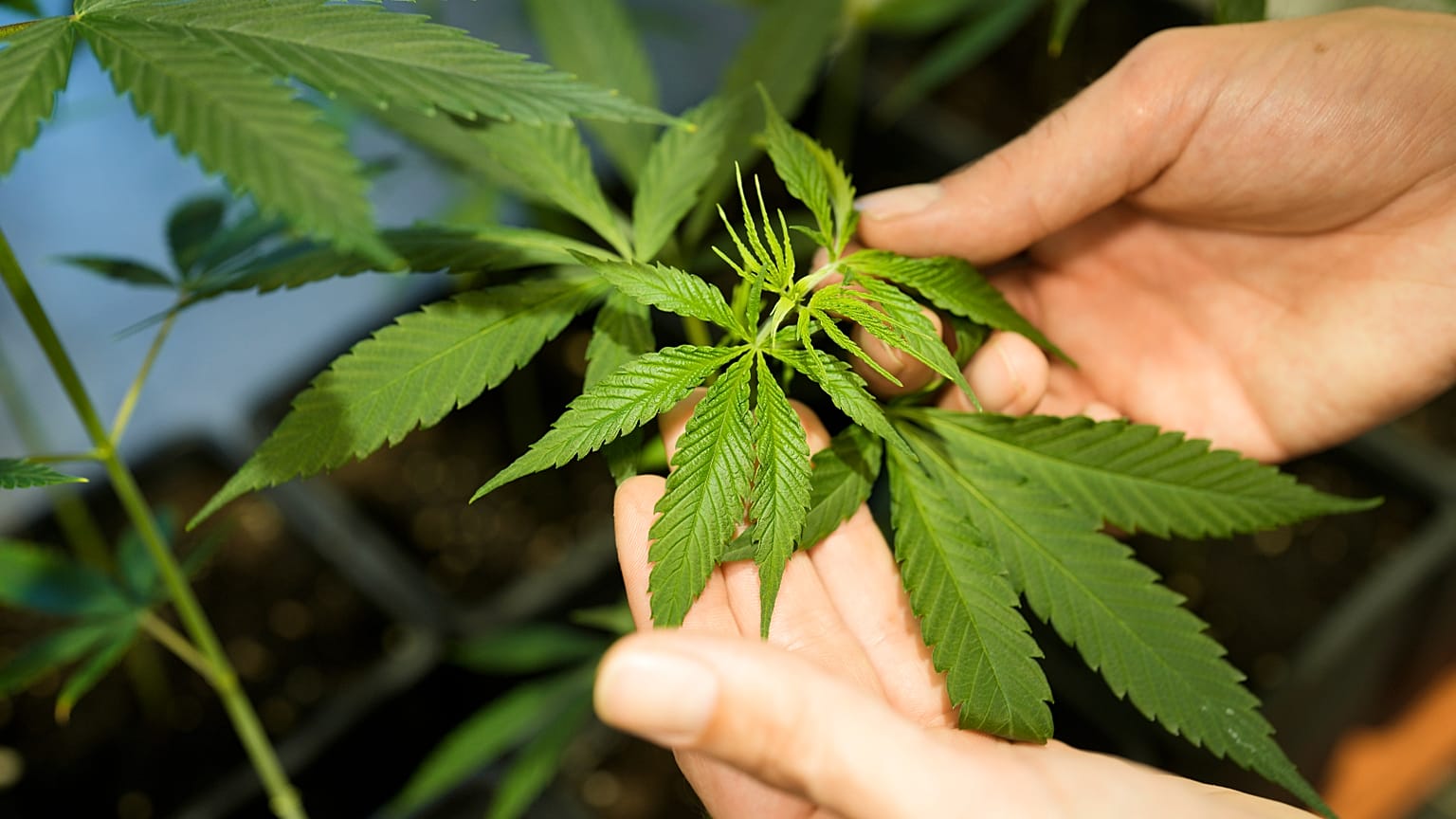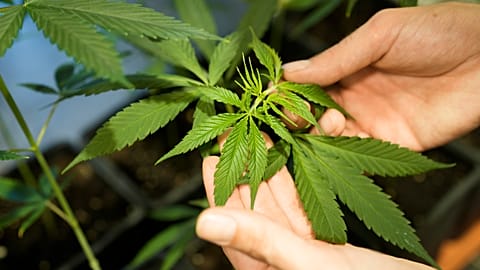While medical marijuana is becoming more available in Europe, cannabis remains illegal in most EU countries for personal use.
Germany moved one step closer to becoming the second EU country after Malta to legalise cannabis for recreational use in a move that could influence other countries to follow suit.
 ADVERTISEMENT
ADVERTISEMENT
 ADVERTISEMENT
ADVERTISEMENT
But across most of Europe, cannabis remains illegal and some EU countries still have legal penalties that include jail time for possession of marijuana.
And while some countries are running pilot programmes for medical marijuana, which is increasingly accessible across the bloc, some say the European market has been slower to grow than the United States or Canada.
Marijuana pioneers
Malta currently has the most tolerant laws in the EU concerning the cultivation, consumption and possession of cannabis.
Adults may carry up to 7 g of cannabis and grow up to four plants at home based on legislation passed in 2021. Smoking marijuana in public, however, is still prohibited.
Germany could soon have the most lenient laws in the bloc, however, as the country’s cabinet approved plans to legalise the possession of 25 g of cannabis for personal use and growing up to three plants. This legislation still needs to be voted on by lawmakers in the Bundestag.
While the Netherlands is often seen as relaxed on marijuana, the cultivation, sale and possession of drugs is illegal. Its sale is “tolerated” in the country’s famous coffee shops with the possession of no more than 5 g of cannabis also decriminalised.
Cannabis has been decriminalised in Portugal since 2001, with the consumption and possession of small amounts treated as an administrative offence and in Spain, private consumption is not prohibited but is considered an offence in public, punishable by fines.
In Luxembourg, private consumption is tolerated as well as the cultivation of four cannabis plants as of this year with possession of cannabis in public decriminalised.
While multiple EU countries have now decriminalised the drug, in some parts of the EU, it is legally still punishable by incarceration.
Cannabis laws are often related to the amount of the psychoactive substance delta-9-tetrahydrocannabinol (THC), according to the European Monitoring Centre for Drugs and Drugs Addiction (EMCDDA).
Pilot programmes for medical marijuana
Cannabis for medical use has become increasingly available in European countries but the market is still being developed.
Some countries have launched public pilot programmes that could lead to more access to medical marijuana, which has been demonstrated in several studies to have some therapeutic benefits for cancer, AIDS, multiple sclerosis (MS) and chronic pain patients among others.
A pilot programme entered into force in Denmark in 2018 to allow doctors to prescribe products that were not previously legal in the country.
“The purpose of the pilot programme is to offer patients a lawful way of testing treatment with medicinal cannabis if they have experienced no benefits from authorised medicines,” the government has said.
In Ireland, a five-year pilot programme was launched in 2019 to facilitate access to cannabis products for medical use. It is for use in patients with multiple sclerosis, nausea and vomiting associated with chemotherapy, and severe epilepsy.
France also began a medical cannabis pilot project in 2021 and the government’s medicines agency is currently defining more specific rules for future French production of medical marijuana products.
While medical marijuana can be prescribed by a doctor in many countries, it can remain quite limited as some countries import small amounts of the available medical products or do not have a programme for sourcing them.
Also, while in the Czech Republic and in Germany, patients can be reimbursed for medical cannabis, in other countries, the cost is covered solely by the patient.
The chief medical officer at Curaleaf International, a medical marijuana company, wrote in the European Pharmaceutical Review this year that Europe has lagged behind Canada, Australia and the US on the issue.
“In many countries, medical cannabis is only utilised as a therapy when licensed medications have proven ineffective,” Mikael Sodergren wrote.
The European Parliament adopted a resolution in 2019 calling for EU-wide rules on medical cannabis and more scientific research on it.
International legal status changing
The UN’s Commission on narcotic drugs voted in 2020 to remove cannabis from Schedule IV of the Single Convention on Narcotic Drugs where it had been classified along with opioids and heroin.
Schedule IV drugs are subject to more controls including a ban on the “production, manufacture, export and import of, trade in, possession or use of any such drug,” and are considered as having no therapeutic benefits.
The removal of cannabis from this list opened the door internationally to recognising possible medical uses of cannabis.
The only EU country to vote against removing cannabis from Schedule IV of the 1961 convention was Hungary.
The European Commission this year even referred Hungary to the EU’s Court of Justice over the vote, stating that it went against the position of the bloc.
Hungary is one of a few EU countries where cannabis is still illegal for both recreational and medical use.
But even in areas where doctors can prescribe medical marijuana, access can be limited.
In Sweden, for instance, recreationally there is no difference between hard and soft drugs meaning cannabis and heroin are classified as narcotics with a zero-tolerance policy towards drugs in the country.
Medical marijuana is only permitted in specific circumstances as approved by the Swedish Medical Products Agency and a doctor.
Over the last few decades, however, laws have moved towards a more lenient stance on the drug overall with countries moving to reduce penalties for possession and becoming more open to its possible medical or therapeutic use.

















